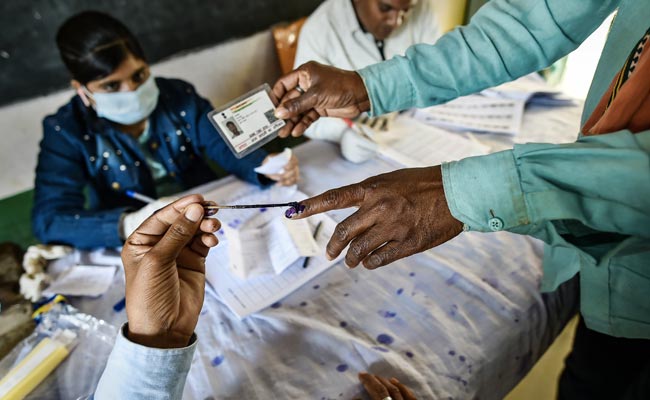Can our minds stay cool during election fever and focus on a post-June 4 India? Hard though such an exercise may be, responsible citizens cannot avoid it.
Two of the questions to be asked are these. One, what is India’s economy going to be like in the next few years, especially for the vast majority that is not comfortably off? Secondly, in the months and years that lie ahead, what’s going to be the likely level of individual liberty for the Indian citizen? These questions also enter, we should recognise, the minds of India’s countless friends around the world.
In fact, the world is involved in any exploration of the near future of India’s economy or of India’s democracy. The immense numbers of Indians getting into, or attempting to get into, other countries indicate that the Indian economy is failing to meet adequately the needs/aspirations of the Indian people. These numbers also of course show a global demand for the skills possessed by India’s women and men.
Unemployment In India
Precise current figures may be hard to come by, but the irrefutable fact is that Indians are willing to go anywhere to find work, even to zones of risk and danger, including Gaza and Israel and arenas of the Russia-Ukraine war. Moreover, rising numbers of Indians are being encountered by U.S. border agents at their country’s southern border with Mexico, and also at the U.S.’s northern border with Canada.
Published last month, a report by Voice of America, an official agency of the U.S. government, said: “In fiscal year 2023, U.S. border agents encountered nearly 97,000 undocumented Indian migrants nationwide, including more than 30,000 at the northern border, according to data from the Customs and Border Patrol or CBP.” It added: “In recent months, the numbers have continued largely unabated. Between October 2023 and February 2024, nearly 14,000 Indians were encountered at the U.S.-Canada border. The record influx is part of a migration rush through Canada that has overwhelmed border security officials and unsettled communities in northern U.S. states. CBP data show that there were nearly 190,000 encounters at the Canadian border in 2023, more than six times the number in 2021.”
Last December, everyone in India heard of the travails of the 300 or so Indians (mostly from Punjab plus some from Gujarat) who were aiming to fly to Nicaragua in order to reach the Mexican border when their aircraft was forced to land in France.
Even a child can make the connection between such daring bids to migrate out of India and India’s unemployment numbers. After all, we had learnt in 2022 that an incredible 1 crore 25 lakh Indians had applied for 35,000 railway jobs.
Since then, absolutely nothing has changed the facts on the ground. Necessary as they are, free rations on a monumental scale are not a solution to massive levels of unemployment. Perhaps we should learn from Bangladesh. Recent reports produced by the Geneva-based International Labour Organization (ILO) show that in creating employment, Bangladesh has performed a good deal better than India.
Who can tell whether solutions to unemployment will be more likely if on June 4 Narendra Modi obtains a third term, or if voters reject him? The sad story of unemployment is after all an old Indian story, predating Modi’s first term as prime minister. Yet, it must be granted that in their manifestos and electoral rhetoric, the Bharatiya Janata Party’s (BJP) opponents have focused far more on unemployment than it has.
The Next Government
On the democracy question, one must hope that the next government will create a better climate for civil liberties in India.
One must also expect the new government not to remain silent when a video shows a teacher exhorting children in her class to deliver sharp slaps to a seven-year-old classmate who belonged to a minority religion. Similarly, condemnation will be expected if an officer of the railway protection police uses his gun to kill three passengers on an express train as their beards and clothes reveal their religion.
India has the world’s largest population. It has always cherished democracy’s core components – liberty, equality, and fraternity – even if these values are hard for any nation to demonstrate fully. If India were to reject democracy, all of humanity would experience a bitter setback.
India’s value as a counterweight to China and as a huge market for the Western world’s aircraft and armaments has thus far restrained leaders of prosperous countries from publicly expressing their unease at the growing rejection in India of equality, liberty and fraternity. That however does not mean that concerns have not been strongly expressed privately.
The reputation abroad of India’s democratic institutions cannot be gauged solely or even primarily from the formal or public words of presidents, prime ministers or diplomats. What is thought or spoken by citizens of the big wide world into which Indians are physically moving in large numbers may prove to be more important than what leaders say.
Rajmohan Gandhi’s latest book is Fraternity: Constitutional Norm and Human Need (2024)
Disclaimer: These are the personal opinions of the author.
